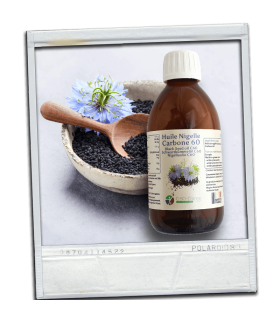The Top Benefits of Coenzyme Q10: How it Can Improve Your Health and Wellbeing
Summary of the Article:
| Key Point | Details |
|---|---|
| Introduction | Coenzyme Q10 (CoQ10) is essential for energy production and antioxidant protection. |
| Role in Energy Production | CoQ10 plays a vital role in the production of cellular energy in the form of ATP. |
| Antioxidant Properties | It helps neutralize free radicals, reducing oxidative stress and cell damage. |
| Heart Health Benefits | CoQ10 supports cardiovascular health by improving heart function and reducing blood pressure. |
| Impact on Brain Health | It may improve cognitive function and protect against neurodegenerative diseases. |
| Benefits for Skin Health | CoQ10 can reduce wrinkles and promote healthier skin by boosting collagen production. |
| CoQ10 and Physical Performance | Supplementation can enhance exercise performance and reduce fatigue. |
| Dosage and Supplementation | Recommended dosages vary, typically between 90 mg and 200 mg per day. |
| Food Sources of CoQ10 | Rich sources include meat, fish, nuts, and certain oils. |
| Potential Side Effects and Interactions | Generally safe but may interact with certain medications, causing mild side effects. |
Introduction to Coenzyme Q10 and its Role in the Body
Coenzyme Q10, also known as ubiquinone, is an intrinsic compound endogenous to the human anatomy, playing a pivotal role in cellular energy production. It exerts its primary functions in the mitochondria, the powerhouse of cells, by orchestrating the oxidative phosphorylation process. Apart from this, coenzyme Q10 is an essential antioxidant that improves the cellular injuries inflicted by free radicals, notorious for their toxic impact.
As coenzyme Q10 concentrations plummet with age, some research speculates that augmenting one's diet with this organic compound can confer multiple health benefits. The focal point of this discourse is to scrutinize the pre-eminent advantages of coenzyme Q10 and how it can augment an individual's well-being and overall welfare.
Coenzyme Q10 and Cardiovascular Health: The Evidence
The ramifications of coenzyme Q10 on cardiovascular well-being have been the subject of extensive research. Some studies indicate that this compound might mitigate blood pressure, improves angina symptoms, manifest as chest pain due to decreased blood flow to the heart, and diminish the likelihood of heart failure. In a small-scale trial, the participants with stable angina experienced improved exercise endurance after coenzyme Q10 supplementation. Another study involving individuals with heart failure documented an enhancement of symptoms and exercise tolerance upon coenzyme Q10 intake. Although the potential advantages of coenzyme Q10 on cardiovascular health are encouraging, more comprehensive studies are imperative to fathom its impact entirely.
Coenzyme Q10 as an Anti-Aging Nutrient
Coenzyme Q10 has undergone scrutiny for its potential anti-aging effects. As previously alluded, coenzyme Q10 levels decrease as age advances, and certain research postulates that coenzyme Q10 supplementation may aid in mitigating the aging indicators. An investigation demonstrated that coenzyme Q10 amplified the smoothness of wrinkles and fine lines in individuals with sun-damaged skin. Another study also documented that coenzyme Q10 supplementation augmented skin pliability and moisture in middle-aged women. While the research concerning coenzyme Q10 and anti-aging is restricted, the findings advocate that it may serve as a helpful supplement in preserving youthful and glowing skin.
Coenzyme Q10 and Energy Production: Boosting Athletic Performance
Coenzyme Q10 is crucial in cellular energy synthesis, rendering it a prevalent supplement among fitness enthusiasts and athletes. Some studies indicate that coenzyme Q10 supplementation may ameliorate physical performance, especially during high-intensity exercises. In a study conducted among well-trained cyclists, coenzyme Q10 intake amplified their sprint performance. Another investigation also found that coenzyme Q10 enhanced muscle function in individuals diagnosed with muscular dystrophy, a genetic ailment that causes muscle weakness. Although the findings concerning coenzyme Q10 and athletic performance exhibit variations, it may be a worthwhile consideration for individuals seeking to augment their energy levels and endurance.
Coenzyme Q10 and Diabetes: Potential Benefits and Risks
Coenzyme Q10 has attracted attention for its alleged involvement in diabetes regulation. Some studies suggest that coenzyme Q10 intake might assist in enhancing insulin sensitivity and decreasing the likelihood of complications in diabetes-affected individuals. In a trial, coenzyme Q10 supplementation ameliorated insulin sensitivity in individuals with type 2 diabetes. In contrast, another study revealed that coenzyme Q10 curtailed the possibility of diabetic neuropathy, a frequent diabetes-associated complication responsible for nerve damage. Nonetheless, it is imperative to note that coenzyme Q10 may interact with specific diabetes medications, such as insulin and sulfonylureas. Hence, it is always indispensable to consult a healthcare practitioner before initiating a new supplement, mainly if one has a chronic medical condition like diabetes. It is also noteworthy that while the indications of coenzyme Q10 on diabetes management appear hopeful, more extensive research is imperative to comprehend its ramifications entirely.
Conclusion
To summarize, coenzyme Q10 is an essential nutrient that is pivotal in energy synthesis and antioxidative protection in the human body. Coenzyme Q10 stands out as a helpful supplement for holistic health and wellness. Coenzyme Q10 supplementation may impart diverse, prospective health gains, such as enhancing cardiovascular well-being, mitigating aging indicators, boosting athletic performance, ameliorating insulin sensitivity, and curtailing complications in individuals with diabetes. Although the indications for these benefits are encouraging, more comprehensive research is indispensable to completely understand the ramifications of coenzyme Q10 on health.
Frequently asked questions
What is Coenzyme Q10?
Coenzyme Q10 (CoQ10) is a naturally occurring compound found in every cell of the body, essential for energy production and antioxidant protection.
How does CoQ10 benefit heart health?
CoQ10 supports cardiovascular health by improving heart function, reducing blood pressure, and protecting against oxidative damage.
Can CoQ10 improve my exercise performance?
Yes, CoQ10 supplementation can enhance physical performance and reduce exercise-induced fatigue.
What are the antioxidant properties of CoQ10?
CoQ10 helps neutralize free radicals, reducing oxidative stress and preventing cellular damage.
Is CoQ10 beneficial for skin health?
CoQ10 can reduce the appearance of wrinkles and promote healthier skin by boosting collagen production and reducing oxidative damage.
What is the recommended dosage for CoQ10?
The recommended dosage for CoQ10 supplementation typically ranges from 90 mg to 200 mg per day, depending on individual needs.
Are there any food sources rich in CoQ10?
Yes, CoQ10 is found in high amounts in meat, fish, nuts, and certain oils such as soybean and canola oil.
Can CoQ10 help with cognitive function?
CoQ10 may improve cognitive function and protect against neurodegenerative diseases due to its role in cellular energy production and antioxidant properties.
What are the potential side effects of CoQ10?
CoQ10 is generally safe but can cause mild side effects such as digestive upset and may interact with certain medications like blood thinners.
How does CoQ10 support overall well-being?
By enhancing energy production, reducing oxidative stress, and supporting various bodily functions, CoQ10 contributes to overall health and well-being.













